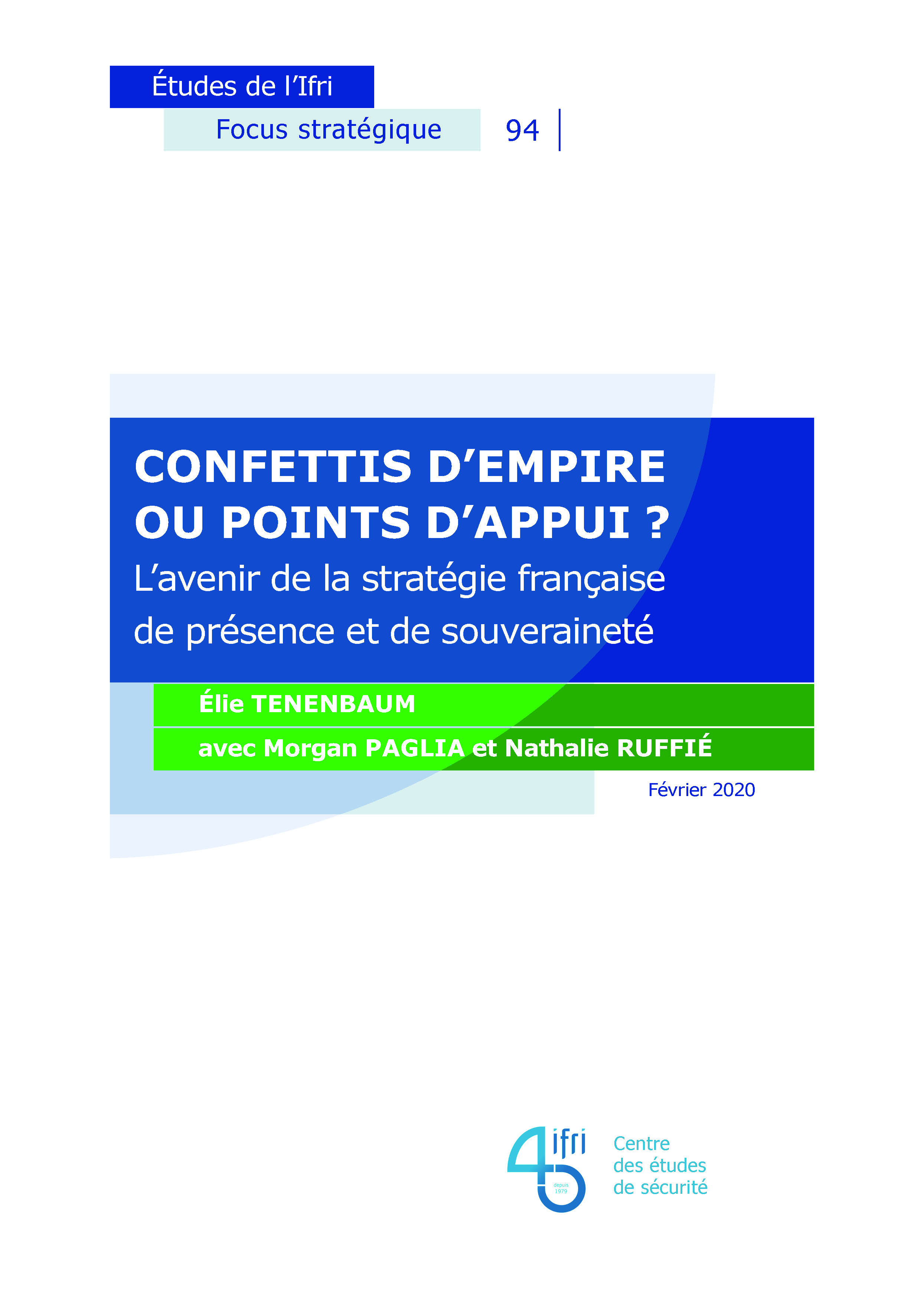Confettis d’empire ou points d’appui ? L’avenir de la stratégie française de présence et de souveraineté

France is one of the few nations in the world to benefit from a permanent global military presence. With more than 10,000 military personnel from all three services, deployed across the five continents and the three main oceanic basins, it benefits from the second largest network of prepositioned forces in the world.

This global military posture is structured around five “presence forces”, based in Senegal, Ivory Coast, Gabon, Djibouti and the United Arab Emirates, as well as five “sovereignty forces” in the dependent overseas territories of the Antilles, French Guyana, Southern Indian Ocean, New Caledonia and French Polynesia. Over the past twenty years, this unique force posture has been hit by a series of deep budgetary cuts, translating into staff reductions and persisting delays in equipment delivery. As a result, the current military presence is under serious strain, as some capability are now weighing on the ability of these prepositioned forces to contribute as much as they could to the five strategic functions reiterated in the 2017 Strategic Review. These considerations are all the more important given the coming demographic, climatic, economic, geopolitical, and of course military challenges that will dramatically constrain the operational environment of the French forces in the coming years.
This content is only available in French: Confettis d'empire ou points d'appuis ? L'avenir de la stratégie française de présence et de souveraineté.

Available in:
Regions and themes
ISBN / ISSN
Share
Related centers and programs
Discover our other research centers and programsFind out more
Discover all our analysesMapping the MilTech War: Eight Lessons from Ukraine’s Battlefield
This report maps out the evolution of key technologies that have emerged or developed in the last 4 years of the war in Ukraine. Its goal is to derive the lessons the North Atlantic Treaty Organization (NATO) could learn to strengthen its defensive capabilities and prepare for modern war, which is large-scale and conventional in nature.
"Iron Swords" A Military Analysis of Israel's War in Gaza
On October 7, 2023, Hamas' attack, dubbed “Al-Aqsa Flood,” caused a major shock and led Israel to launch the longest war in its history. Operation “Iron Swords” was notable for its unprecedented intensity, both in terms of the massive ground forces deployed and the firepower used.
Saudi Arabia’s Nuclear Temptations. Lessons Learned from Regional Instability
Saudi Arabia’s integration in the international arena and regional stability, notably through reducing its dependence on fossil energies, are crucial elements for the success of the Kingdom’s Vision 2030, the Crown Prince’s top priority. However, Mohammed bin Salman’s declarations in 2018 and 2021, indicating that “if Iran develops a nuclear bomb, we will follow suit as soon as possible”, combined with the recent strikes on key Iranian nuclear facilities, do not bode well for the future of the Kingdom, the region and the non-proliferation regime at large.
The Future of Air Superiority. Command of the Air in High Intensity Warfare
Air superiority, understood as control of the air, is a cornerstone of the Western art of warfare. It is a decisive condition, albeit not sufficient by itself, to achieve military victory, as it enables the concentration of air power toward the achievement of wider strategic objectives and protects other components from unbearable attrition levels. It is best achieved through the offensive use of air power in a joint effort to neutralize the enemy’s air power.















